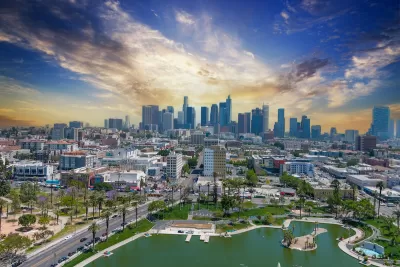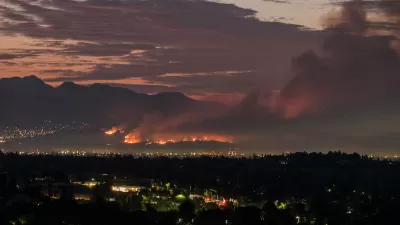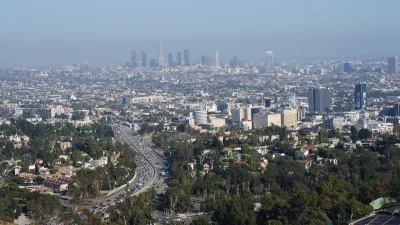As the CRO, Matthew Gonser is focused on tackling extreme heat, flooding, and wildfires while engaging the community and implementing systemic changes to build a more sustainable and climate-resilient future.

Matthew Gonser, recently appointed as Los Angeles County’s Climate Resilience Officer, brings experience from a similar role in Honolulu and is now tasked with defining the Climate Resilience Initiative approved by the Board of Supervisors. Working within the Chief Sustainability Office, he will focus on addressing critical threats such as extreme heat, wildfires, and flooding, as outlined in the County's Climate Vulnerability Assessment. Gonser emphasizes the importance of long-term commitment and the need to reconsider past decisions to build a resilient future for a region of such local and national significance, viewing this as a leadership opportunity for Los Angeles.
To avoid a "doom and gloom" mentality about climate change, Gonser advocates for community engagement and action, stressing that resilience is about improving everyday quality of life through clean air, reliable water, and connected, affordable communities. While individual efforts like expanding transit choices and conserving resources are essential, he points out that systemic and institutional changes are needed to truly address the scale of the climate crisis, underscoring that climate resilience is a shared responsibility beyond personal choices. In his free time, he looks forward to exploring L.A. by biking, riding transit, and discovering its diverse plant and animal life.
FULL STORY: The Climate Guy

Study: Maui’s Plan to Convert Vacation Rentals to Long-Term Housing Could Cause Nearly $1 Billion Economic Loss
The plan would reduce visitor accommodation by 25,% resulting in 1,900 jobs lost.

North Texas Transit Leaders Tout Benefits of TOD for Growing Region
At a summit focused on transit-oriented development, policymakers discussed how North Texas’ expanded light rail system can serve as a tool for economic growth.

Why Should We Subsidize Public Transportation?
Many public transit agencies face financial stress due to rising costs, declining fare revenue, and declining subsidies. Transit advocates must provide a strong business case for increasing public transit funding.

How to Make US Trains Faster
Changes to boarding platforms and a switch to electric trains could improve U.S. passenger rail service without the added cost of high-speed rail.

Columbia’s Revitalized ‘Loop’ Is a Hub for Local Entrepreneurs
A focus on small businesses is helping a commercial corridor in Columbia, Missouri thrive.

Invasive Insect Threatens Minnesota’s Ash Forests
The Emerald Ash Borer is a rapidly spreading invasive pest threatening Minnesota’s ash trees, and homeowners are encouraged to plant diverse replacement species, avoid moving ash firewood, and monitor for signs of infestation.
Urban Design for Planners 1: Software Tools
This six-course series explores essential urban design concepts using open source software and equips planners with the tools they need to participate fully in the urban design process.
Planning for Universal Design
Learn the tools for implementing Universal Design in planning regulations.
City of Santa Clarita
Ascent Environmental
Institute for Housing and Urban Development Studies (IHS)
City of Grandview
Harvard GSD Executive Education
Toledo-Lucas County Plan Commissions
Salt Lake City
NYU Wagner Graduate School of Public Service





























